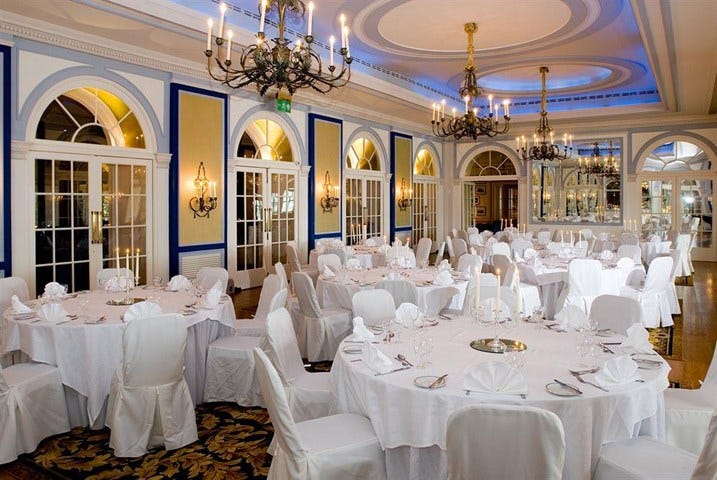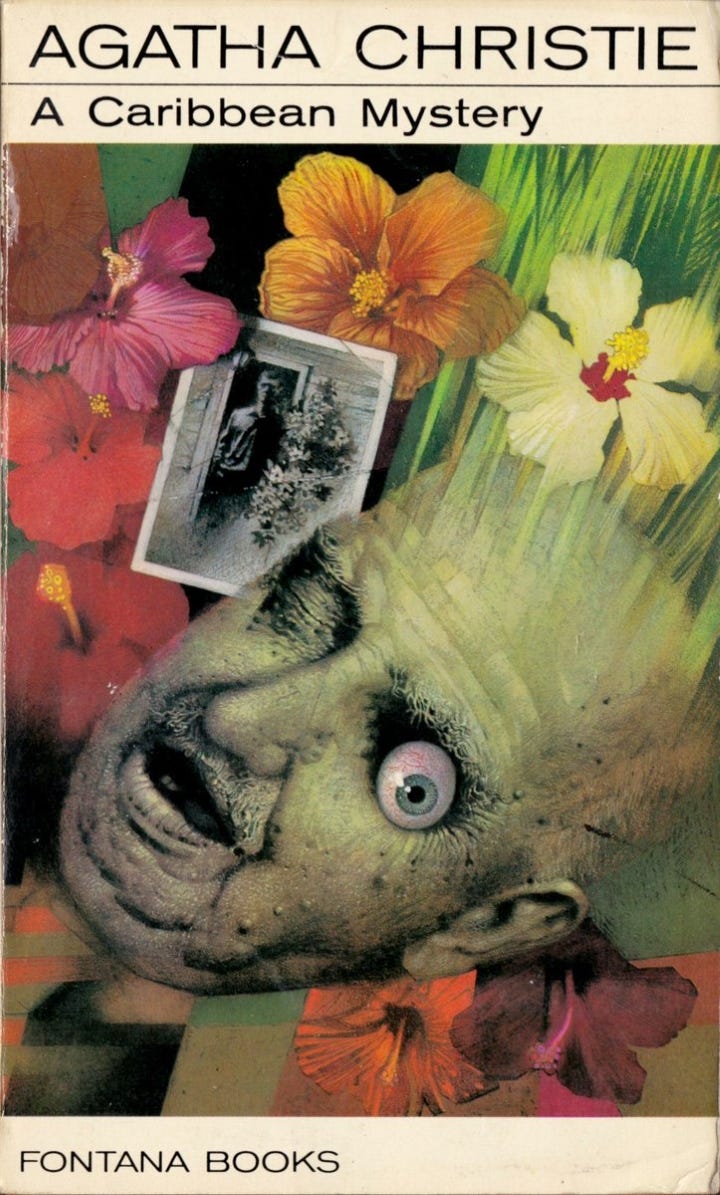I had a few days off, although I didn’t ‘go anywhere for Easter’. (I actually asked precisely that, did you ‘go anywhere’, of my adored hairdresser, who had to reply with the same exemplary politeness that she would have shown to all the other women who would have asked her exactly the same thing… Small talk is hell, is it not.)
So I went ‘nowhere’, because why do it during the school holidays if you don’t have to, but sometimes when I feel overworked I get an almost overwhelming urge to go to the English south coast. Preferably alone, with the need for talk, both small and large, thereby removed. (Being publicly alone has never bothered me; although it can lead to misunderstandings. The last time I stayed in Torquay a man sent a note to the table where I was having a drink, asking me to have dinner with him, presumably thinking that I was sitting there in order to achieve such an aim; I didn’t accept the invitation although I quite enjoyed the note. As Muriel Spark put it, I dearly love a turn of events).
I do usually end up in Torquay. Why? I’m not sure. I love south Devon. I got to know it very well when researching my Agatha biog - she of course grew up there - although the town was changing during her own lifetime, and she would now find much of its centre unrecognizable; I have become inured to the shock that I first felt when I saw it. As I wrote in my book:
Torquay’s handsome Fleet Walk splashed with lurid shop fronts; the 1851 town hall now a branch of Tesco; the old bank, with its pale gold stone façade, now Banx Café Bar; the elegant 1912 seafront Pavilion now boarded up and awaiting ‘development’; the palm trees shrivelling outside ‘Warriors Boxing Venue’; the calm creamy villas advertising Vacancies; the bare-chested holidaymakers on Higher Union Street, where Agatha’s father had bought china…
Rudyard Kipling once said that Torquay was so genteel he longed to affront it by running round naked except for his spectacles: those days are long, long gone.
Nevertheless much of it is beautiful. The view over the curved bay is indestructible. It is also healthful - all those hills! And it puts no pressure on you, as I feel that Hove or Hastings might do. Give or take the odd purveyor of an oat milk latte, it is almost entirely untouched by fashion - by the scourge of self-awareness - and that I find extraordinarily liberating.
Which takes me to what I really love about it, which is the hotels.
There may be hotels in or around Torquay that have been interior-reconfigured, places that aspire to contemporary-grandeur-chic, with indoor trees and complicated chandeliers and public rooms laid out like a Cluedo board, with cavapoo yoga and a tepidarium and ‘heritage’ fruit and vegetables that are not even sourced, sourced is so 2019, but are grown within Olympic-long-jumper distance from the restaurant… The modern hotel, in all its borderline-obsession-with-detail glory.
For all their loveliness I find such places slightly oppressive, like a ‘relaxing’ break at a spa full of supermodels. If they exist in the environs of Torquay (bet they don’t) then I don’t know of them, and moreover I don’t want to know. I love nothing so much as a hotel that is reconstructed only to the extent that it cooks beetroot rather than slicing it into a limply reddened salad, and whose attention to detail means a sufficient variety of free scrunchy things with one’s glass of wine as to obviate the need for dinner.
More to the point, I love old splendour, left essentially to its own devices. The Grand at Eastbourne (mentioned in an earlier post) had it, as I’m sure do other places, but I know where I am with Torquay. I love the Grand, with its circular bar that overlooks the sea and its beautiful creamy yellow frontage, its drifting ghosts of young Agatha and Archie Christie, who spent their honeymoon night there in 1914; I love the Imperial (above), established in 1866, with its wonderful stately proportions and faintly weary solidity. And - in somewhat different vein - I loved the hotel where I spent a couple of nights last year, a large pale villa (slightly built upon) at the top of those ozone-y hills, into which one evening - as I was eating a perfectly nice non-heritage salad and sketching out an idea in the vast, sunlit bar - there wandered a man of uncertain age and inexpressible gameness, wearing a silver suit, carrying (as one might a large briefcase) a portable keyboard, which at about 9pm he plugged in and delivered songs by Bobby Darin, Elvis, Manfred Mann, The Walker Brothers…. culminating in a rendition of Sweet Caroline that had those present singing away with a genuine zeal and merriment, of the kind that one rarely now finds in this country. Of course I was too self-aware to sing, and was instead trying to compose my expression into one of smiling yet disengaged appreciation. Of course I was trying to work out when, and how, to walk across the enormous bar and gain the sanctuary of the lift, without looking as though I was leaving because of snooty up-myself disapproval.
Nevertheless I loved it.
In other words: I love old-fashioned hotels, like the one in Cornwall where for some years I spent summer holidays with my parents - the foyer permeated with the faintest sea spray, and beyond it a dense immutable smell of roast dinners; then the almost visible cloud of Arpège and L’Air du Temps that emerged from the lift as well-dressed, slightly sunburned women made their formal entrance to the convivial evenings; the hotel band, and the older couples who would take to the floor, unsmilingly, with regimented Come Dancing aplomb; the rather glamorous hotel owner, who was having a calamitous fling with one of the guests…
Which takes me to the real beginning of this post, which was intended to be a divertissement about hotels in books, although the intro grew of its own accord (the beauty of Substack, that one can do that!) Hence the belated introduction of a paywall, and of course the option of a free trial, should you wish to read to the bitter end.
I shall start - as I so often do - with Agatha, who portrayed hotel life extraordinarily well… particularly in this book.
Keep reading with a 7-day free trial
Subscribe to Laura Thompson’s Substack to keep reading this post and get 7 days of free access to the full post archives.






